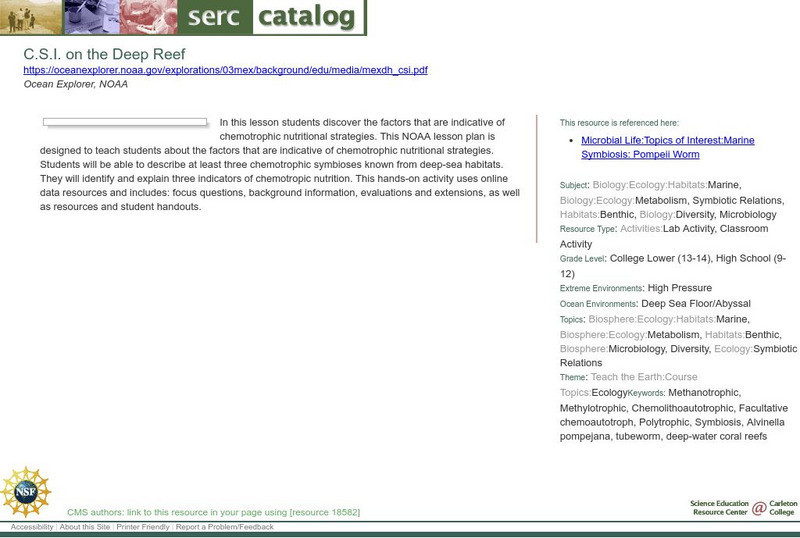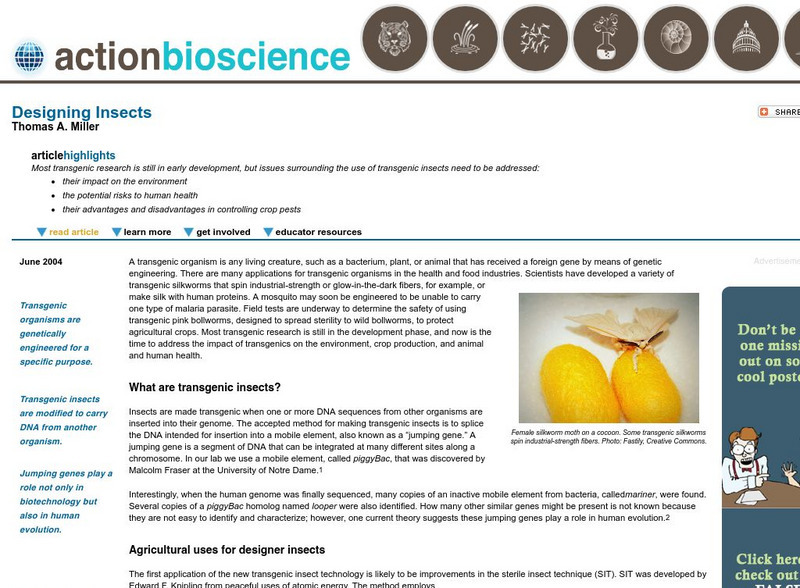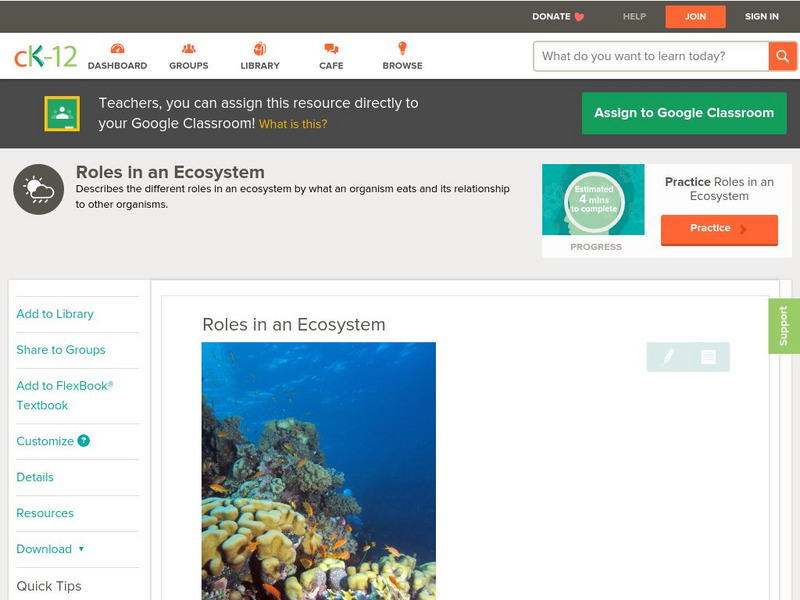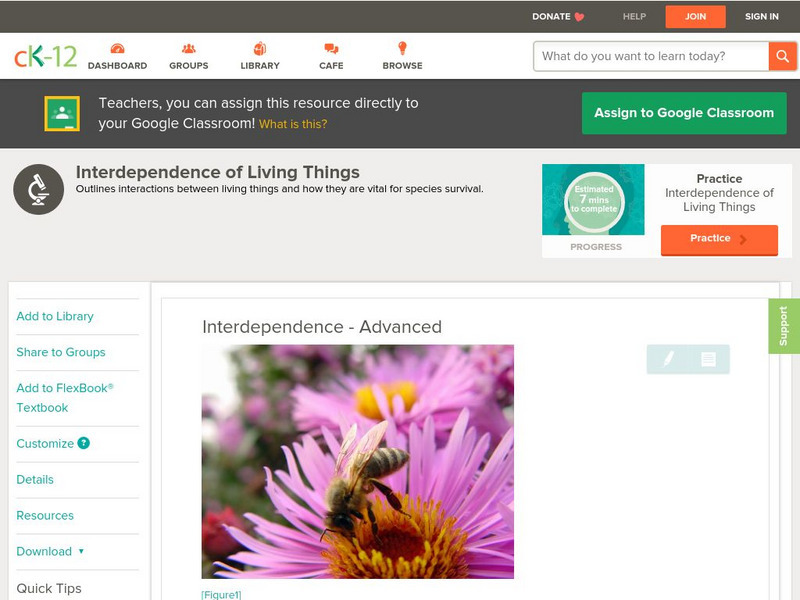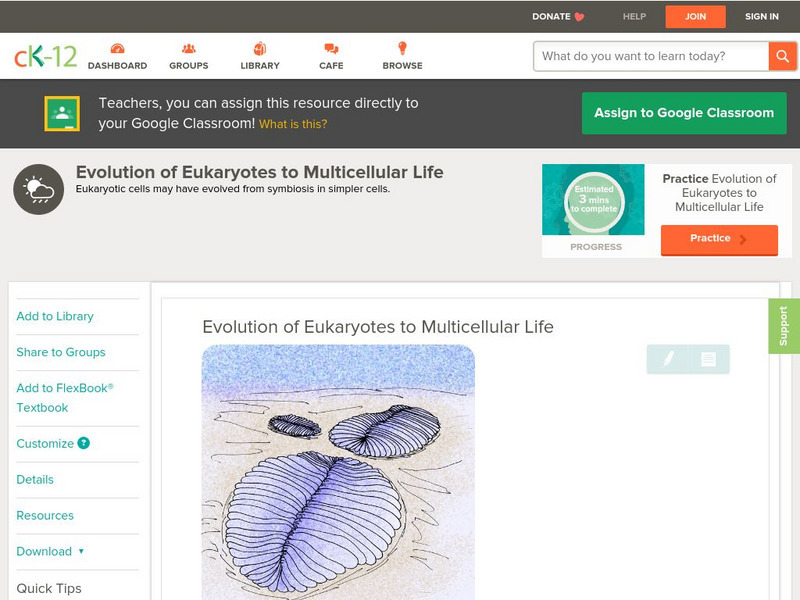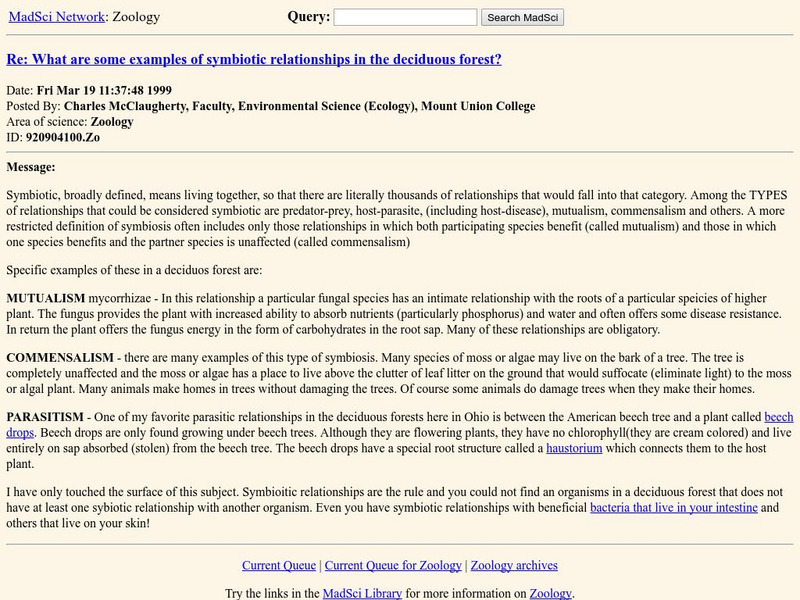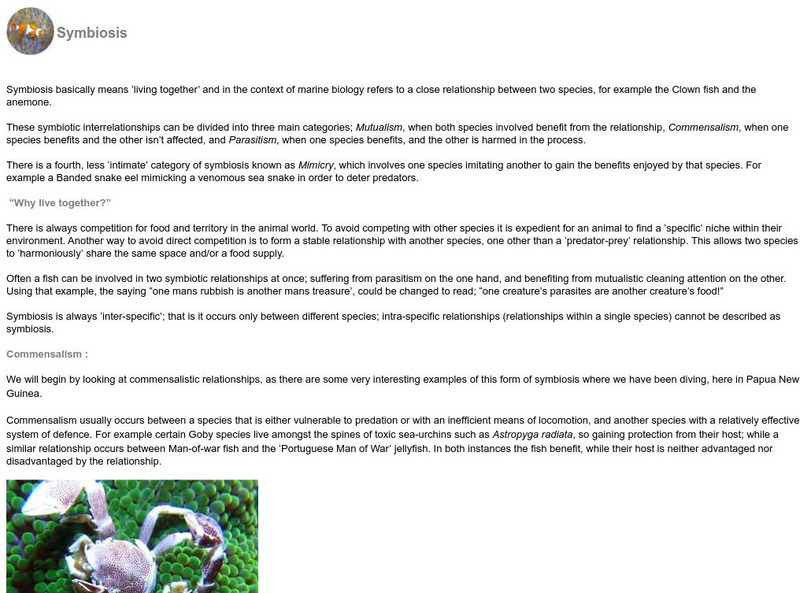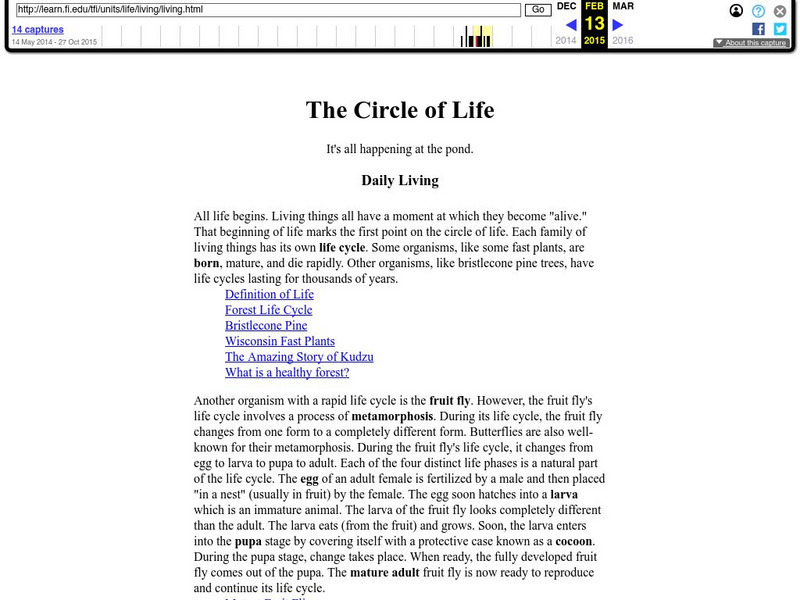University of Nebraska
University of Nebraska State Museum: Brazil Nut Tree Community
Investigate the numerous symbiotic relationships that exist between the Brazilian Nut Tree and six other organisms in its community.
Science Education Resource Center at Carleton College
Serc: c.s.i. On the Deep Reef
In this lesson students discover the factors that are indicative of chemotrophic nutritional strategies. This NOAA lesson plan is designed to teach students about the factors that are indicative of chemotrophic nutritional strategies....
American Institute of Biological Sciences
Action Bioscience: Designing Insects
Biologists are busy developing and testing insects that are "homemade" for a variety of reasons, but an example would be genetically modifying a mosquito to not carry a particular strain of malaria. There are pros and cons to these...
Ohio State University
Ohio State University: Concepts of Plant Ecology
An advanced discussion of plant interactions and relationships. Energy flow, nutrient cycling and succession are discussed. Try the quiz to check your understanding.
TED Talks
Ted: Ted Ed: How We Think Complex Cells Evolved
Adam Jacobson explains endosymbiosis, a type of symbiosis in which one symbiotic organism lives inside another. [5:42]
TED Talks
Ted: Ted Ed: Parasite Tales: The Jewel Wasp's Zombie Slave
This is stranger than science fiction. The jewel wasp and the cockroach have a disgusting and fascinating parasitic relationship. The jewel wasp stuns the cockroach, and months later, a jewel wasp hatches out of the cockroach. At...
Morning Earth
All Lives Interlive: Joining Up Is Life Root Process
Scholars explore concepts in Biology about symbiosis. The tutorial consists of definitions, examples, and pictures about interliving as a basic pattern of life.
Scholastic
Scholastic: Study Jams! Science: Ecosystems: Symbiosis
Symbiosis is featured in this video to help students understand the process through an engaging video. Know terms like parasites and mutualism to be successful on the test.
Other
Perspective Periodicals: The Fungus Kingdom: Lichens
Lichens are one of the most fascinating organisms on this planet. If fact, they are actually composed of two organisms - a fungus and algae. Find out all the amazing facts about this interesting organism.
CK-12 Foundation
Ck 12: Earth Science: Roles in an Ecosystem
[Free Registration/Login may be required to access all resource tools.] Describes the different roles in an ecosystem.
CK-12 Foundation
Ck 12: Biology: Interdependence of Living Things
[Free Registration/Login may be required to access all resource tools.] Covers interactions between organisms.
CK-12 Foundation
Ck 12: Biology: Evolution of Eukaryotes
[Free Registration/Login may be required to access all resource tools.] Discusses how eukaryotes evolved.
CK-12 Foundation
Ck 12: Biology: Symbiosis
[Free Registration/Login may be required to access all resource tools.] Overview of symbiotic relationships.
CK-12 Foundation
Ck 12: Earth Science: Evolution of Eukaryotes to Multicellular Life
[Free Registration/Login may be required to access all resource tools.] The evolution of eukaryotic cells and multicellular organisms.
CK-12 Foundation
Ck 12: Life Science: Symbiotic Relationships of Fungi
[Free Registration/Login may be required to access all resource tools.] Fungi don't live in isolation. They often interact with other species. In fact, fungi can be dependent on another organism for survival. When two species live close...
Healthline Media
Medical News Today: Articles: Biology: What Is Fungus? What Are Fungi?
Explore how fungus reproduce, where they live, and how they feed. Also learn their structure and how they are classified.
MadSci Network
Symbiotic Relationships in the Deciduous Forest
A brief definition of symbiotic, followed by explanations of mutualism, commensalism, and parasitism.
Other
Marine Studies: Symbiosis
View graphics of a mimic octopus, frog fish, snake eel, hermit crab and clown fish. Discover how they form symbiotic relationships.
The Franklin Institute
The Franklin Institute Online: The Circle of Life
The Franklin Institute explores how "each family of living things has its own life cycle." Links to many resources are woven together with narrative at this site.
University of Utah
University of Utah: Genetic Science Learning Center: The Evolution of the Cell
Learn about the endosymbiotic theory. This theory explains the evolution of cells from a mitochondria and chloroplast working together in a symbiotic relationship to the current cell structure.
Science Struck
Science Struck: Symbiotic Relationships in the Deciduous Forest
Explains what a symbiotic relationship is, the five main types of symbiosis, and provides examples of symbiotic relationships among living things in a deciduous forest.
CommonLit
Common Lit: Clownfish and Sea Anemone
Clownfish and sea anemone have a special relationship-a "symbiotic relationship." As you read, take notes on the specific ways in which clownfish and sea anemones contribute to their symbiotic relationship. It also offers a guided...
CommonLit
Common Lit: "Can't We All Just Get Along?" by Bird Brain Science
Earth is full of a variety of living things that interact with one another in many different ways. This informational text explains the various different types of relationships they can have with one another. It also offers guided...
Science Struck
Science Struck: Mutualism Relationships
Learn how mutualism benefits the organisms in a symbiotic relationship and what the different types of mutualism are. Provides lots of examples.



